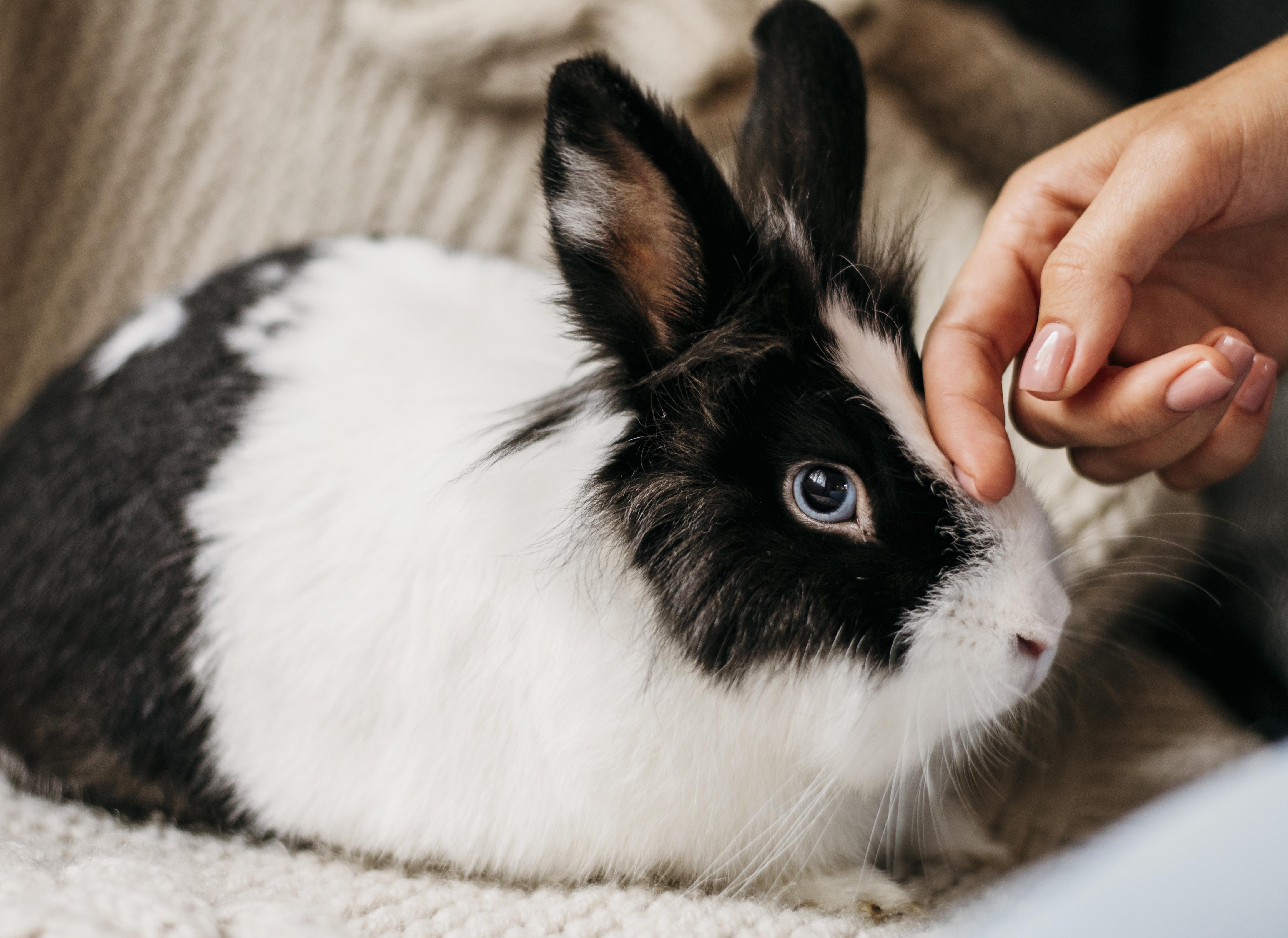How to Prevent Hairballs in Rabbits & Guinea Pigs
Article - 4 min read • Updated Jun 17, 2025
Medically reviewed by Dr. Arman Chen, BVSc (Qld.), BSc (Leic.)

Why Rabbits Get Hairballs
Rabbits are naturally clean animals. They groom themselves every day, just like cats. But unlike cats, rabbits can’t vomit. Any fur they swallow must pass completely through their digestive system.
If it doesn’t, that fur can build up inside their gut, mixing with food to form a hairball, also known as a trichobezoar.
Hairballs in rabbits are often a symptom of something else going wrong with their digestion. That’s why prevention is key.
What Makes Hairballs Dangerous for Rabbits
A healthy rabbit’s digestive system is always moving. Think of it like a conveyor belt that is constantly pushing food and fur through, with the help of fibre (derived from a mostly hay diet).
When that conveyor belt slows down (or worse, stops), swallowed hair can collect into larger clumps that may block the gut. This is why GI stasis is often the bigger danger, with hairballs being part of that picture.
The good news is that you can help prevent this from happening by making sure your rabbit’s diet and environment support healthy digestion.
Signs Your Rabbit Might Be Struggling With Hairballs
It’s not always obvious at first, but some signs to watch out for include:
- Smaller or fewer droppings
- Droppings strung together with fur
- Reduced appetite or refusing food
- Sitting hunched or showing signs of discomfort
- Being quieter or hiding more than usual
- Bloated tummy
If your rabbit stops eating completely, this is a medical emergency. Don’t wait, get them to a rabbit-savvy vet immediately.
How to Prevent Hairballs in Rabbits
Here’s how you can help your rabbit avoid hairballs and keep their digestive system working the way it should:
Feed Your Rabbit Unlimited Hay
Hay isn’t just food — it’s the key to healthy digestion. Hay provides the fibre that helps move everything along the gut, including swallowed fur.
Timothy hay, orchard hay, or meadow hay are all great options. Your rabbit’s diet should be 90% hay.
Make Sure Your Bunny Stay Active
Movement helps digestion. Give your rabbit plenty of space to hop, stretch, and play every day. Bored or inactive rabbits are at greater risk of digestive problems.
Groom Your Rabbit Regularly
Especially during moulting seasons, rabbits can shed large amounts of fur. Regular brushing helps remove loose hair before your rabbit swallows it.
Even short-haired rabbits benefit from brushing — and it’s a great bonding activity, too.
Keep The Stress Down
Stress can cause rabbits to eat less and can slow their gut down. Provide a safe, quiet space, and avoid sudden loud noises or changes in their routine.
Watch for Changes Early
Keep an eye on your rabbit’s droppings and appetite. Changes are often the first sign that something isn’t right. Catching issues early makes treatment much easier and more successful.
Check With Your Vet Before Using Remedies
Don’t give laxatives or home remedies unless recommended by your vet. Some products can make things worse or mask the real problem.
What About Guinea Pigs?
While guinea pigs are at lower risk compared to rabbits in developing hairballs, long-haired guinea pig breeds such as Silkies and Peruvians can develop hairballs too, especially if they’re shedding, overgrooming, or barbering (chewing on their own or a cage mate’s fur).
As with rabbits, a healthy digestive system and regular grooming go a long way in reducing the risks for guinea pigs. The prevention tips are very similar: high-fibre diets, fresh water, daily grooming (especially for long-haired piggies), and minimising stress.
Checking your guinea pig's output to ensure there is nothing out of the ordinary is also helpful. Use this handy guinea pig poop chart for your reference!
Our Pocket Pets Deserve the Best Care
Hairballs in rabbits and guinea pigs are often preventable with the right diet, care, and attention. The most important thing is to stay observant and act early if something seems off.
If you ever have doubts, or if your furry friend's behaviour has changed, get in touch with Gaia Vets at 6950 4533 (Jalan Besar) or 6727 7511 (Parksuites, Holland Grove Rd). We’re here to help your pets stay happy, healthy, and hopping!